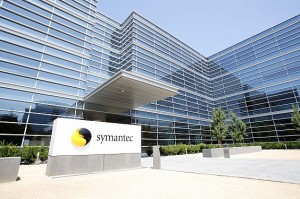
Under the helm of its new CEO, Steve Bennett, Symantec last week outlined a re-organisation intended to lead to a leaner company and a new range of security and back-up services and products.
These products would be built primarily on internal research and development instead of acquisitions, within the next six to nine months, Bennett said.
In a presentation in front of Wall Street investment firm analysts, Bennett, who became head of Symantec last July, was candid in saying sales and marketing teams had been “high cost but didn’t provide quality outcomes” and said lay-offs were coming there in a transition beginning right away that would primarily impact middle management. “Our system is just broken,” he admitted later, saying it was time to fix it through a total re-organisation of how Symantec sells and licenses products and services.
There would be a new emphasis on e-commerce capabilities and telesales in the future, Bennett said. There would be more effort to have Symantec security and back-up products and services integrated into what telecom firms and ISPs do, and a focus on vertical markets with more customised offerings for small businesses and vertical markets.
Bennett added that, while Symantec continues to have an endpoint security business, there isn’t going to be a big dividing line in terms of consumer and business anymore.
“We don’t have a consumer business anymore,” he declared, noting that Janice Chaffin, Head of Symantec’s Consumer Unit, had effectively stepped down.
In other changes, Symantec has created a new “Office of the CEO”, in which a small team of executives will make collective operational and functional decisions with Bennett. The CEO, joined by some members of a team that includes Francis deSouza as President of Products and Services and Steve Gillett, COO, said that Symantec envisions the creation of new lines of products and services in which it would be investing heavily through research and development.
Symantec has great products, many of them gained through acquisitions, but could be doing a better job on integrating them and simplifying the way they are licensed, said Bennett. He promised a “revolution”, in which Symantec will be re-designing products with an eye toward finding a way that customers can simply turn on functionality rather than acquiring another product.
In addition, Symantec will be focusing on offerings in 10 core areas, including Mobile Workforce Productivity, Norton Protection, Norton Cloud, Information Security Services, Identity/Content-Aware Security Gateway, Data Centre Security, Business Continuity, Integrated Backup, Cloud-based Information Management, and Object Storage Platform.
Symantec is emphasising that cloud-based services, smartphone and tablet security and back-up will be front and centre. Bennett, who said he did not envision additional inroads into “network security”, said he and his team met with over 50 enterprise and government customers, and asked for specific advice from analysts, among others, before reaching the decision to do what was announced yesterday.
“Before, it was all about the PC,” said deSouza, the top director for how these ideas will be technically implemented. “Now it’s mobile devices, BYOD, web platforms.” The old enterprise network is not being replaced by cloud and mobile but expanded by it, he noted, saying it means there are simply more “control points” to be protected.
DeSouza acknowledged that Symantec’s share of the security market has been falling over the last six years or so. Not only do traditional competitors such as McAfee remain a force to be reckoned with, but start-ups are also gaining a foothold in newer areas. DeSouza also said that Symantec faces competition in various ways from the operating-system “stack providers” such as Microsoft with Windows, Apple with its iOS platform or VMware with its virtualisation platform.
But he said that Symantec’s advantage in meeting these challenges is through a “cross-platform, “heterogeneous” approach that will “scale” in terms of security and back-up services and products. Symantec also emphasised the consumerisation of IT and the “IT-isation of the consumer” is blurring the old demarcations between the role of enterprise network and the role of the individual.
Internal innovation will be key to what Symantec does, deSouza said. In about six to 10 months, Symantec expects to introduce new Information Security Services to do with aggregating information related to both Symantec and third-party products, combined with threat intelligence feeds, to determine where network assets need remediation and the security-compliance status.
Symantec promised the Wall Street investors that this strategy will lead to “more than 5% organic growth” and “non-GAAP operating margins better than 30%” over the next two or three years. Still, some expressed scepticism combined with optimism, with JP Morgan, for instance, saying in its analysis that it thinks Symantec has “a tremendous amount of untapped potential,” but “it remains unclear whether than potential will be realised.”
But JP Morgan also noted that, while Symantec “has been plagued by execution issues and secular concerns for years”, the company has more value than is being recognised in the stock today.
The moment that Bennett’s webcast meeting with the Wall Street investment firm crowd ended, rival McAfee, now owned by Intel, blasted out a mocking critique of it all.
“We see Symantec is embracing the McAfee Security Connected strategy but they are four years behind us,” said Mike Fey, CTO, McAfee, claiming that McAfee a decade ago made the decision to integrate products into the McAfee ePolicy Orchestrator. He mockingly added that because McAfee has Intel behind it, Symantec’s hardware and software security “is in no position to match” McAfee, which he said outguns Symantec in “network security” used by the enterprise.
Symantec today, however, is the much larger rival in the head-to-head security match that has gone on for well over a decade with McAfee.





